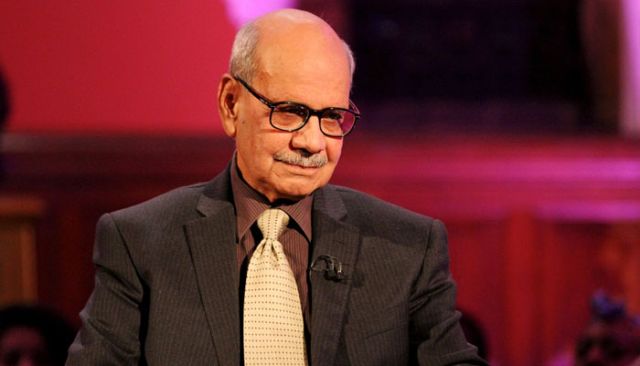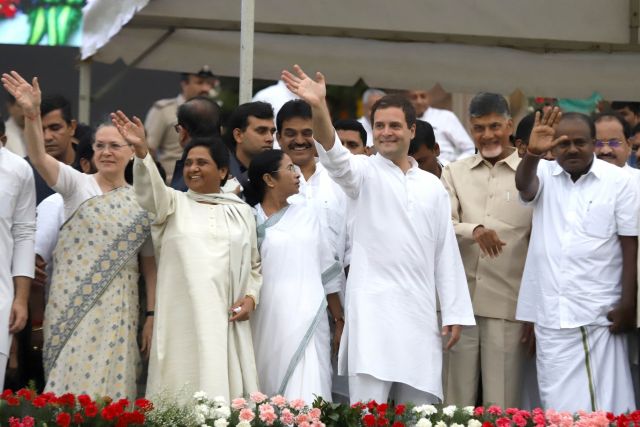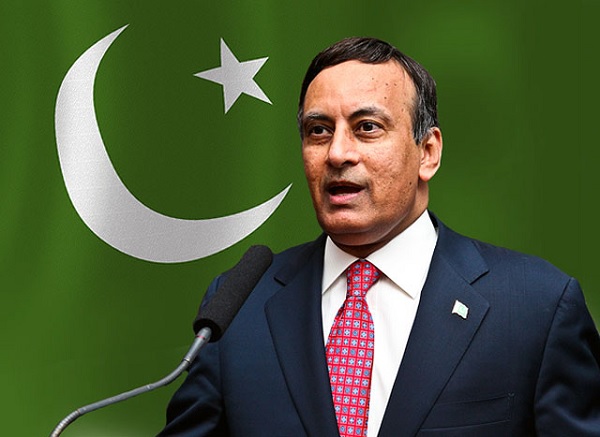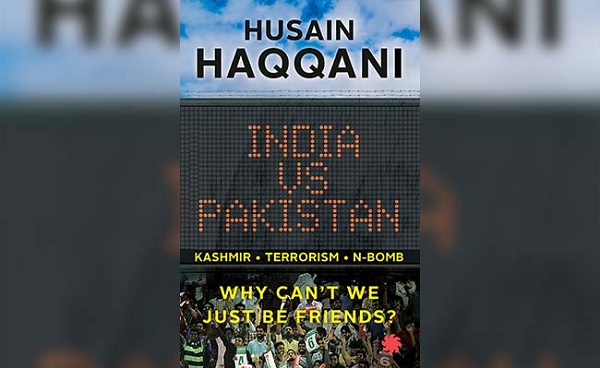
by admin | May 25, 2021 | Interviews, Muslim World

Former ISI chief, Lt. Gen. Asad Durrani
By Sarwar Kashani and Saket Suman,
New Delhi : Former ISI chief, Lt. Gen. Asad Durrani, who has triggered a controversy in Pakistan with a book he co-authored with his once-rival Indian spymaster, says that the army and the intelligence agency of his country have never stopped any civilian government in Islamabad from improving ties with India if done on the basis of “sound principles” of international relations.
“The common belief (that civilian governments in Pakistan are subservient to the military when it comes to critical foreign policies) is seriously flawed. No one ever prevented a civilian government from improving relations with India – if it did that according to sound principles of relations between nations. Otherwise, even a military ruler like (Pervez) Musharraf could come to grief,” Durrani told IANS in an email interview from Pakistan.
Pakistan’s Inter-Services Intelligence (ISI) chief was denied a visa for the launch of the book, “The Spy Chronicles: RAW ISI And The Illusion Of Peace”, which was released jointly by former Vice President Hamid Ansari, former Prime Minister Manmohan Singh and former Union minister Yashwant Sinha in New Delhi on May 23.
He has since been summoned by Pakistan Army asking him to explain his position on views attributed to him in the book of dialogues that throws light on the perspectives, assumptions and observations of the two spymasters on Kashmir; Hafiz Saeed and 26/11; Kulbhushan Jadhav; surgical strikes; the deal for Osama bin Laden; how the US and Russia feature in the India-Pakistan relationship; and how terror undermines the two countries’ attempts at talks.
Asked about his remarks in a pre-recorded video played at the book launch in which he blamed the “Indian deep state” for being instrumental in denying him a visa, Durrani said: “Every country has a ‘deep state’- at times called ‘establishment’ or ‘nomenclatura’ (of the Soviet era) and is composed differently.
“India and the US have some of the most powerful ones. They keep the political leadership ‘in line’.”
Replying to a question about current border tension between India and Pakistan with talks stalled and all sports and cultural exchanges at a standstill, the former ISI chief said nothing was “forever” in ties between the two nuclear-armed nations.
“Thaws and freezes will come and go in the foreseeable future. The single most important factor that holds back is India’s entrenched belief that the ‘status quo’ suited her better. Any major change, even if seemingly of some good, would create a dynamics that India might not be able to control,” he pointed out.
In the book, Durrani suggests that instead of having “a confidant of each Prime Minister, a team headed by someone considered suitable by the major political parties, the foreign office and the military”, should be engaged for talks “to ensure their long-time relevance”.
Asked how was it possible when neighbourhood policy of the two countries changed with their dispensation, Durrani said: “Precisely for that reason. If there was wider participation there might be more chances that the policies would not be fiddled with ‘too much’. Indeed, the government of the day has the prerogative but in most cases was unlikely to ride roughshod like (US President Donald) Trump.”
Asked if he agreed with his Indian counterpart’s assertion that India should talk directly with the Pakistan Army, the former military general said: “Dialogues take place at multiple levels — official and unofficial. But a political umbrella for the process is the sine qua non (essential condition) for (its) success.”
About Pakistan Army Chief General Qamar Javed Bajwa’s remarks that India and Pakistan need to talk to solve all their disputes, including Kashmir, Durrani said it wasn’t unprecedented for any military chief to advocate peace talks.
“I can’t read his (Bajwa’s) mind. But hardly any chief before him said anything different. (Former military dictator General) Zia ul Haq even used ‘cricket diplomacy’.”
About Musharraf’s four-point formula to solve the Kashmir issue between the countries, he said it was quite popular in Jammu and Kashmir.
“But remember what I said about ‘sound principles of international relations’. If ignored even the best of ideas would not work-like they didn’t in the period you have mentioned.”
The four-point formula was floated in 2006, when Manmohan Singh was the Indian Prime Minister. It advocated no re-drawing of borders in Kashmir but allowing free movement across the region for people on both sides of the Line of Control.
It suggested self-governance or autonomy but not independence for the state divided between India and Pakistan.
The military ruler also suggested phased withdrawal of troops from the region and working out a mechanism jointly so that the road map for Kashmir was implemented smoothly.
The idea never took concrete shape though it was for the first time that a Pakistan ruler was departing from a historical stance of seeking plebiscite for Kashmiri people according to the UN resolutions.
The two spymaster in the book have suggested that the idea should be open for a revisit.
(Sarwar Kashani and Saket Suman can be contacted at sarwar.k@ians.in and saket.s@ians.in)
—IANS

by admin | May 25, 2021 | Opinions
 By Saeed Naqvi,
By Saeed Naqvi,
Two mutually reinforcing images from last week may well define the next phase in national affairs. It is too early to call them game changers but they have considerable potential.
The most comprehensive array of opposition leaders, almost a record, who assembled in Bangaluru for H.D. Kumaraswamy’s swearing in as Chief Minister of Karnataka, is significant because it happened despite the contradictions inherent between the various groups in that galaxy.
The occasion produced the man and he better be noticed: Kunwar Danish Ali, the Jamia Millia educated, JD-S spokesman, carried sufficient credibility on both sides to swiftly stitch together the Congress-JD-S alliance in the state. This became the platform on which stood India’s non-BJP diversity. In stitching this extensive hem too, Danish Ali is being applauded by those who know.
Muslims in politics are either too weather beaten or “too Muslim” to navigate diversity. Danish Ali, in my view, is a political animal with a wide reach and one who keeps his faith intensely private. We should hear more about him should the Karnataka experiment remain intact.
The other iconic image was, quite curiously, of a book release. It must have been a few hours of grave national danger, because seldom has the well appointed auditorium of the Claridges hotel been more packed with spies, past and present. For its sheer audacity, Spy Chronicles, RAW, ISI and the Illusion of Peace, is by itself a thrilling title, but when the authorship comes out in sharp silhouette, the revelation takes one’s breath away.
A.S. Dulat, former chief of RAW, and Gen. Asad Durrani, former head of Pakistan’s Inter Services Intelligence (ISI), have put their heads together and have, without compromising fidelity to their respective oaths of office, produced a 320-page document which must now onwards inform those in the subcontinent shaping policy on Kashmir and India-Pakistan relations.
The high-powered congregation in Bengaluru and the brave effort of the Dulat-Durrani duet, both respond to the same national quest – a softer more humane sub continent. Alas, a calmer India, on its own, divorced from the sub continent, is just not possible. It is, likewise, not possible for Pakistan. 1947 was both a blessing and a curse. We could define our separate nations according to our lights but we were also yoked together by geography from which proceed historical and sociological currents which flow forward but also regurgitate into the past.
The first concerted effort to wrench away from the subcontinental centre of gravity came from Pakistan’s dictator, General Zia ul Haq. His push for Nizam-e-Mustafa invited nascent Islamophobia which has metastasized into the modern horror.
Just when fluctuations in Indo-Pakistan ties give way to a seemingly interminable hostility comes the Dulat-Durrani intervention, opening a ventilator in an otherwise suffocating hothouse.
What the book touches on is, in effect, the nub of the matter. Indo-Pakistan initiatives flounder on that ubiquitous document meant for the principal, say, the Prime Minister, marked “for eyes only”. If the Deep State on both sides is the obstacle, why not allow spymasters on both sides to sort out the cobwebs which the principals cannot?
Leftovers from Partition are Kashmir, Pakistan, Hindu-Muslim tensions. If tense communal relations are a requirement for the politics of Hindu consolidation, it follows, as night follows the day, that Kashmir and Indo-Pakistan relations must simmer in perpetuity. They have been placed on auto by our own hands.
To obviate communalism as an essential requirement for electoral politics, it is essential that the motley political crowd on the podium in Bengaluru is regularized. Many societies called it a rainbow coalition.
Both, pre-requisite and a consequence of the Bengaluru experiment is precisely this: tone down social disharmony which communalism aggravates. This end is unachievable without the Dulat-Durrani initiative taking off. Social disharmony, it needs to be stressed, is the overarching malaise under which communalism is played. That is why one photograph that came out of the Bengaluru assembly is epochal – Sonia Gandhi leaning her head against Mayawati’s.
It may be odd to remember Urdu poetry at this juncture but do indulge a line. The most graphic poet, Mir Anis, describes cosmic tumult in which two mutually hostile creatures come together in the face of common danger:
“Shaheen o kabk chhup gayey
Ekja mila ke sar”
(Facing danger, the falcon and the dove put their heads together in the thicket)
Considering that the Congress lost its deposit in the March by-elections in Uttar Pradesh’s Phulpur and Gorakhpur constituencies, Sonia Gandhi would be seen to be in requirement of the BSP supremo, Mayawati’s help. Mayawati may not have been the winner but it was with her help that Akhilesh Yadav’s SP won the two seats.
In this situation what would one make of Congress Election Chief in Madhya Pradesh Digvijay Singh’s statement from Bhopal. He dismissed any tie up with the BSP. Neither was Sonia’s photograph with Mayawati an announcement of a tie up, nor does Digvijay Singh’s reported statement scuttle it. This non-story is only a precursor to what is in store: political busy bodies will load a triangular situation – Congress, BSP, SP – with such heavy voltage speculation that some strand somewhere will snap. The process of coalition building will only be partly in the hands of the principals. To a large extent the process will be conditioned by the din surrounding it which will create misgivings all around as in rapid fire magazines.
The Dulat-Durrani initiative will be subjected to an even more severe ordeal by fire, at least upto 2019. The events of last week provide hope which will generate its opposite – the Pulley principle.
(A senior cmmenator on political and diplomatic affairs, Saeed Naqvi can be reached on saeednaqvi@hotmail.com . The views expressed are personal.)
—IANS

by admin | May 25, 2021 | News, Politics

Arvind Kejriwal
New Delhi : Delhi Chief Minister Arvind Kejriwal on Sunday accused the BJP of dividing India on Hindu-Muslim lines and said it had done in three years what Pakistan and its ISI could not do in 60 years.
“Pakistan’s biggest dream is to divide Hindustan on the lines of Hindus and Muslims. Those who’re dividing the country on the lines of Hindus and Muslims are ISI agents,” the Aam Aadmi Party leader said at the party’s National Conference here.
“Under the veil of patriots, they’re anti-nationals. They want to weaken the country. This dream has been harboured by Pakistan. What Inter-Services Intelligence could not do in 60 years, the BJP has done in three years,” he said and asked voters in Gujarat to defeat the BJP.
Thousands of party workers participated in the conference at the Ramlila Maidan here, from where the India Against Corruption movement led by Anna Hazare started and later gave birth to the AAP party in 2012. The event drew participation from 22 states.
Talking about the December Gujarat elections, Kejriwal said: “I request the people of Gujarat to give your vote to the candidate or party who can defeat the BJP.”
“If somewhere, the AAP is winning, give your vote to AAP. If any other party is winning, give the vote to them. But defeat the BJP,” Kejriwal said.
Speaking on the occasion, AAP founder-member Kumar Vishwas said the party had moved away from the path it set out on and has to find the right way forward.
“Don’t you think we have gone somewhere else from where we were moving to five years ago? We have to find the right way,” the AAP leader said.
He also called for introspection on the part of the AAP leadership and cadres. “We should think about ourselves as to where we started five years ago and where we are now.”A
Vishwas said some party leaders do not talk about social activist Anna Hazare, under whose leadership many of them participated in the 2011 anti-corruption movement. “Anna was the creator of this campaign.”
Referring to the AAP National Council meeting held this month, he said his name was not in the list of speakers at the event. However, he said, he will not go anywhere and stay in the party.
In October, AAP revoked the suspension of AAP MLA Amanatullah Khan, who had accused Vishwas of being a traitor. In May, Khan was suspended, days after making the accusation and Vishwas was named AAP incharge of Rajasthan.
While thousands of party volunteers in the crowd sported the trademark AAP white cap with the party symbol “broom”, many like Munesh Rani, 53, had the broom symbol and “AAP” painted on their cheeks.
AAP party flags with Kejriwal’s face and party symbol dotted the ground as volunteers waved them as AAP leaders spoke from the stage.
Party leaders, including Delhi Ministers Manish Sisodia and Gopal Rai, AAP Spokesperson Ashutosh, National Secretary Pankaj Gupta, as well as Punjab MP Bhagwant Mann spoke on the occasion, as were a large number of AAP MLAs from Delhi and Punjab as well as AAP corporators from the national capital.
—IANS

by admin | May 25, 2021 | Interviews

Husain Haqqani, Pakistan’s former envoy to the US
New Delhi: (IANS) Prosecution of jihadis in Pakistan is difficult as the system considers them to be “the good guys”, according to Husain Haqqani, Pakistan’s former envoy to the US.
Talking about his latest book, ‘India vs Pakistan: Why Can’t We Just be Friends?’ Haqqani told IANS in an email interview that Pakistan considered jihad to be a low-cost option to bleed India and that this was the only way for it to ensure some form of military parity.
Haqqani, who’s an integral part of the powerful elite in Islamabad and was adviser to four prime ministers, talks in his written replies about jihad, relations with India, Pakistan’s own tryst with the scourge of terrorism, and the nexus between ISI — Pakistan’s military intelligence service — and the Islamic jihadi forces. (Excerpts)

Cover Page: , ‘India vs Pakistan: Why Can’t We Just be Friends?’
Q. Can you explain ex-ISI chief Shuja Pasha’s statement on 26/11 terror attack, “Log hamare the, operation hamara nahi tha” (our people but it was not our operation)?
A. Pasha said, “our people” were involved, he didn’t say it was Pakistan army officers or ISI men. Pasha could have meant Pakistanis or he could be referring to LeT (Lashkar-e-Taiba) as “our people.” However, Pasha had told ex-CIA Director, General Michael Hayden, that “retired Pakistani army officers and retired intelligence officers” were involved in the planning. General Hayden says so in his book. Condoleezza Rice, then Secretary of State, has also written the same.
Since 26/11, Pakistan never went into the depth of the case even though proof was presented. We did arrest some, but we have not successfully prosecuted those responsible and until that is done, questions will remain.
Q. Rice had warned Pakistan to shut down terror operations. However, nothing has changed.
A. Prosecution is difficult in a system where jihadis targeting India are seen as ‘the good guys’. Yes, Secretary Rice had told Islamabad to shut down all terrorist operations. But that wasn’t the first time and certainly not the last. Pakistan has persisted with the same policy since the 1990s. When pushed by US on terror: first deny, then list Pakistani grievances, bring up Kashmir and blame India, provide commitments and assurances and end again with denial. This is not working.
Q. Though US had named Zakiur Rehman Lakhvi of LeT as the 26/11 mastermind, he is roaming around freely in Pakistan. What is stopping Islamabad from taking action?
A. Pakistan sees jihad as a low cost option to bleed India. The security apparatus views terrorism as irregular warfare. Islamabad feels this is the only way to ensure some form of military parity.
Q. Is there a concerted attempt by the Pakistan army to thwart peace talks?
A. As an analyst, I have seen that over the last 69 years, Indian and Pakistani leaders have met 53 times and yet been unable to change the course of their ties. Whenever the two try to move forward, the military has reacted. Civilian and army leaders have lost power after attempting to make peace.
Q. What should be Pakistan’s policy on Kashmir?
A. Having a normal relationship, people-to-people ties and trade doesn’t mean giving up on legal or political claim. The question I ask is: Is Kashmir really Pakistan’s ‘jugular vein’ if it has survived for 69 years without it? Should the two risk nuclear mass destruction over a quarrel they have not been able to resolve for so long?
However, Pakistan’s military has insisted on resolution of the Kashmir imbroglio before opening trade or travel.
Q. Pakistan’s Kashmir policy remains by and large in the hands of the military even when a civilian prime minister holds office. How can we expect a solution?
A. Under civilian prime ministers, Pakistan has moved forward with India. But Pakistan’s security establishment insists on controlling foreign and security policy, including the Kashmir policy. They have not been able to reach any long-lasting solution. Pakistanis realise that it is only civilian leaders who can actually reach a solution.
Q. In your opinion, Indira Gandhi had been magnanimous with the Shimla Pact, but Pakistanis saw the absence of pressure for a full settlement of Kashmir as an opportunity to keep the conflict alive. Should she have been more assertive on Kashmir?
A. Mrs Gandhi did not trust (prime minister) Zulfikar Ali Bhutto but she saw him as preferable to a military regime. For India, domestic unrest or balkanisation of Pakistan, is not a favorable development.
The compromise was to declare in Shimla that “the two countries are resolved to settle their differences by peaceful means through bilateral negotiations.” This was meant to preclude any future war.
Q. The book mentions how Pakistan intelligence had passed on the information of 10 terrorists who sneaked into Gujarat in March. Do you feel that its a sincere move to preempt a crisis after Pathankot?
A. It’s very positive that Pakistan has shared intelligence with India. But it was more because pressure from India and US. India cancelled scheduled talks and (Prime Minister Nawaz) Sharif was eager to resume dialogue. It was less likely that this move reflected concern for possible Indian casualties and was more to do with the need to deflect international pressure.
Q. Are you hopeful of a breakthrough in Indo-Pak relationship after Pathankot?
A. The two foreign secretaries met in New Delhi for the Heart of Asia conference and Prime Minister (Narendra) Modi is scheduled to travel to Islamabad for the SAARC summit in November this year. So, talks will continue as before but for a breakthrough, the two sides need to move beyond simply cancelling or rescheduling talks and create an environment for change.
Q. You also talk about the shrinking space for friendship and increasing ‘saffronisation’ of India. How harmful is this for ties?
A. Indo-Pak ties have become a victim of two parallel and contending nationalisms. In recent years, we are increasingly resembling each other in rage, resentment and public displays of religion.
Q. How do you see US policy towards Pakistan in the wake of US elections?
A. Neither of the current Presidential candidates have expressed a positive view of Pakistan. What should worry my countrymen is that entire US thinktank and the average American share the same view.
Hilary Clinton as Secretary of State in 2011 said, “You can’t keep snakes in your backyard and expect them only to bite your neighbors.” US policy towards Pakistan has been built on what I call ‘Magnificent Delusions’. Pakistan saw the US as its superpower ally who would build its resources to stand up to India, but Washington never saw India as a threat. US and Pakistan have very different goals but still assume they can get the other to work to their advantage.
(Haqqani’s book has been published by Juggernaut. Preetha Nair can be reached at preetha.n@ians.in)





